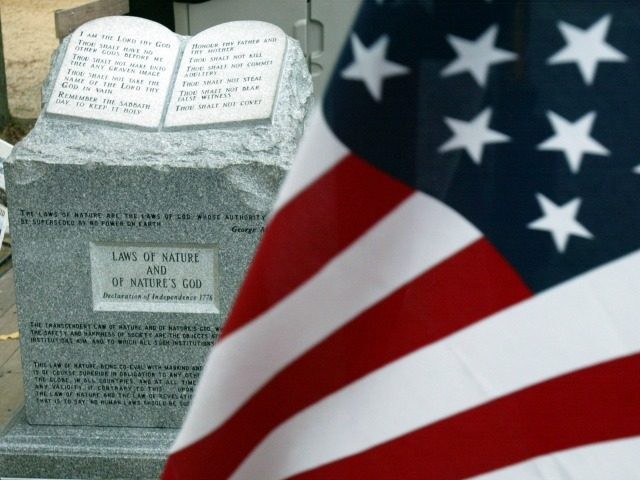U.S. citizens are “far more religious” than adults from other prosperous western countries, the Pew Research Center revealed in a new report Tuesday.
Despite widely reported drops in religious practice and the growth of the non-religiously affiliated (“nones”) in the United States, the fact remains that “Americans pray more often, are more likely to attend weekly religious services and ascribe higher importance to faith in their lives than adults in other wealthy, Western democracies,” Pew found.
By every important index, Americans are much more religious than Canadians, Australians, and most Europeans, Pew said.
Whereas a healthy majority of American adults (55 percent) say they pray every day, fewer than half as many say the same in Canada (25 percent), Australia (18 percent), and Great Britain (6 percent). Among all Europeans, an average of fewer than one in four (22 percent) say they pray daily.
The United States continues to stand out for its religiosity, Pew noted, and in this regard more closely resembles poorer, developing nations than the wealthy countries of the West. Regarding the habit of daily prayer, Americans find themselves in the middle of the pack of very religious poor countries, such as South Africa (52 percent), Bangladesh (57 percent), and Bolivia (56 percent).
Out of the 102 nations examined in the Pew study, only the United States had both a higher-than-average level prayer and greater wealth. Not a single other country surveyed with a gross domestic product (GDP) of more than $30,000 per person registered even 40 percent of adults saying they pray daily.
Despite its unique status among wealthy nations, religious practice in the U.S. has dropped off considerably.
A 2015 study by the Pew Research Center found that the United States had experienced an alarming dip in religiosity over the prior seven years, with the only religions to grow in the period were Islam, which was up a half percent, Hinduism, up 0.3 percent, and the ambiguous category of “other religions,” comprising everything from Baha’i to Wicca to Satanism.
The religious category to suffer the biggest losses was Christianity, especially mainline Christianity and Catholicism, which fell 3.4 percent and 3.1 percent, respectively. Though the United States is still a statistically “Christian nation,” with some 70 percent of Americans identifying themselves as Christian, it is markedly less so than even a generation ago.
In 2007, Americans were 78.4 percent Christian whereas in 2014—just seven years later—the figure had dropped to 70.6 percent. Some of the smaller constituencies, such as Mormons and Jehovah’s Witnesses, remained virtually unchanged, while the larger denominations saw significant decreases.
In a 2017 study, Pew found that religious affiliation and practice had dropped off dramatically during of President Barack Obama’s two terms in the White House.
“When it comes to the nation’s religious identity, the biggest trend during Obama’s presidency is the rise of those who claim no religion at all,” Pew noted in a report titled “How America Changed During Barack Obama’s Presidency.”
When Barack Obama took office, those who identified as atheists or agnostics along with those who said their religion was “nothing in particular” totaled only 16 percent of the U.S. adult population. On leaving office 8 years later, the non-religious in America made up nearly a quarter of the population.
The percentage of Americans who say they believe in God, consider religion to be very important in their lives, pray daily, and attend religious services at least monthly all dropped during the Obama years, Pew found.
Despite these sobering statistics, some scholars claimed earlier this year that religiosity is not on the decline in the United States but enjoys “persistent and exceptional intensity.”
In an analysis of recent scholarship, Glenn T. Stanton observed that while moderate religion is indeed slipping in the United States, intense religious belief and practice, especially among Christians, is holding strong and even increasing.
A report in December 2017 by scholars from Harvard and Indiana Universities suggested that the secularization taking place in many advanced industrialized societies does not in fact hold for American culture, and that religiosity in the United States is actually growing more exceptional in comparison with the rest of the world.
“The secularization thesis asserts that as a result of ongoing modernization and the advance of science, religion will become increasingly irrelevant in public and private life,” researchers Landon Schnabel and Sean Bock said. Whereas this pattern seems to hold true in several advanced industrial societies, there are notable differences in the United States.
Rather than symmetric decline across all levels of religiosity, they asserted, “religious change in the United States could be driven by a decline of moderate religion,” the writers contend.
Moreover, although religion in America may be following the trend of other countries on average, “we suspect that intense religionists will increasingly define religion in the United States and that this religious makeup is—and will continue to be—unique compared to other wealthy, secularizing countries,” they said.
Follow Thomas D. Williams on Twitter Follow @tdwilliamsrome

COMMENTS
Please let us know if you're having issues with commenting.